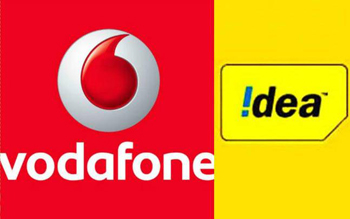Mar 20: Idea Cellular and the Indian unit of British telecom company Vodafone today announced a merger, creating India's largest telecom operator. The merger will create India's largest telecom operator with widest network in the country and pan-India 3G/4G footprint, the companies said in a statement. Vodafone will own 45 per cent of the combined entity and Idea and Vodafone will have the right to nominate 3 directors each. The deal excludes Vodafone's 42 per cent stake in tower company Indus Towers. The combined entity will have 40 crore customers or nearly one in three customers in India.

Promoters of Idea will have the sole right to appoint chairman. The appointment of chief executive officer and chief operating officer need the approval of both the promoters.
The entry Reliance Jio has spurred a consolidation in the Indian telecom sector. Jio, backed by energy conglomerate Reliance Industries' billionaire owner Mukesh Ambani, has intensified competition in India, the world's second-biggest mobile market after China.
Bharti Airtel reported its lowest profit in four years in the October-December quarter while No. 3 player Idea Cellular posted its first-ever quarterly loss for the same period.
Bharti Airtel had earlier this year announced an agreement to buy Norwegian company Telenor's operations in six Indian states.
Reliance Communications has already entered into an agreement to merge its wireless business with rival Aircel.
The merger between Vodafone and Idea Cellular is seen positive for the telecom sector and the combined entity. "The combined entity's operating margins will improve by around 3 percentage points due to cost synergies in networking and selling, general and administrative expenses," the India Ratings, a rating agency, had said in a report.





Comments
Add new comment